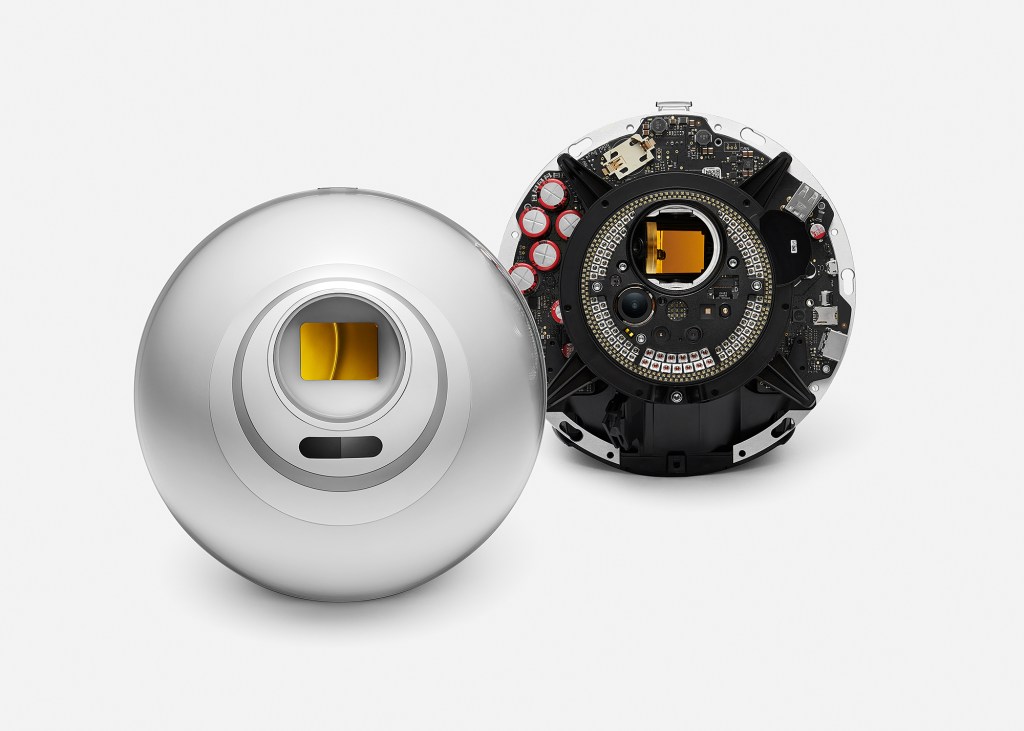Fake virtual identities are nothing new. The ability to so easily create them has been both a boon for social media platforms — more “users” — and a scourge, tied as they are to the spread of conspiracy theories, distorted discourse and other societal ills.
Still, Twitter bots are nothing compared with what the world is about to experience, as any time spent with ChatGPT illustrates. Flash forward a few years and it will be impossible to know if someone is communicating with another mortal or a neural network.
Sam Altman knows this. Altman is the co-founder and the CEO of ChatGPT parent OpenAI and has long had more visibility than most into what’s around the corner. It’s why more than three years ago, he conceived of a new company that could serve first and foremost as proof-of-personhood. Called Worldcoin, its three-part mission — to create a global ID; a global currency; and an app that enables payment, purchases and transfers using its own token, along with other digital assets and traditional currencies — is as ambitious as it is technically complicated, but the opportunity is also vast.
In broad strokes, here’s how the outfit, still in beta and based in San Francisco and Berlin, works: To use the service, users must download its app, then have their iris scanned using a silver, melon-sized orb that houses a custom optical system. Once the scan is complete, the individual is added to a database of verified humans, and Worldcoin creates a unique cryptographic “hash” or equation that’s tied to that real person. The scan isn’t saved, but the hash can be used in the future to prove the person’s identity anonymously through the app, which includes a private key that links to a shareable public key. Because the system is designed to verify that a person is actually a unique individual, if the person wants to accept a payment or fund a specific project, the app generates a “zero-knowledge proof” — or mathematical equation — that allows the individual to provide only the necessary amount of information to a third party. Some day, the technology might even help people to vote on how AI should be governed. (A piece in the outlet IEEE Spectrum better spells out the specifics of Worldcoin’s tech.)
Investors eager to be in business with Altman jumped at the chance to fund the outfit almost as soon as it was imagined, with Andreessen Horowitz, Variant, Khosla Ventures, Coinbase and Tiger Global providing it with $125.5 million. But the public has been more wary. When in June 2021, Bloomberg reported that Altman was at work on Worldcoin, many questioned its promise to give one share of its new digital currency to everyone who agreed to an iris scan. Worldcoin said it needed to be decentralized from the outset so it could deliver future currency drops as part of universal basic income programs. (Altman has long predicted that AI will generate enough wealth to pay every adult some amount of money each year.) From Worldcoin’s perspective, the crypto piece was necessary. Yet some quickly deemed it another crypto scam, while others questioned whether a nascent startup collecting biometric data could truly secure its participants’ privacy.
Altman later said the press owed to a “leak” and that Worldcoin wasn’t ready to tell its story in 2021. Now, reorganized under a new parent organization called Tools for Humanity that calls itself both a research lab and product company, the outfit is sharing more details. Whether they’ll be enough to win over users is an open question, but certainly, more people now understand why proving personhood online is about to become essential.
Everything everywhere all at once

It was in 2019, as Altman was leaving famed accelerator Y Combinator to become the CEO of OpenAI, that he began interviewing people to lead a new organization he’d been imagining. The first founder he brought into the fold, Max Novendstern, was a former investment associate at Bridgewater Associates and worked previously for a money transfer startup called Wave; the second founder who Altman brought on, Alex Blania, had been studying theoretical physics at the California Institute of Technology and the Max Planck Society.
By early 2021, Novendstern had moved on to launch another startup. Blania stayed, however, becoming Worldcoin’s CEO.
Blania told me recently of Novendstern’s departure that he is “just incredible zero-to-one, very creative” but “not as operational as the company needs to be” at this point. Altman meanwhile has told me that he’s not “day-to-day involved” but thinks “super highly” of Blania’s now 120-person team, which collectively aims to create the “largest financial and identity system globally and make it fully privacy preserving and inclusive,” says Blania.
It’s a tall order. Currently, the outfit says it has 1.2 million users; to be truly effective, it needs more than a billion more, including people resistant to the idea of biometric technologies and all things crypto-related.
Altman — who remains on the board of Worldcoin — knows it’s a lot to overcome. At an evening event I hosted in January, he told the audience that the “need for systems that provide proof of personhood and the need for new experiments with wealth redistribution and global governance of systems” is growing because of developments in AI, but he also called Worldcoin an “experiment” that he is “very glad” is running.
Further, while Altman suggested that privacy concerns around Worldcoin were misguided, he also recognized that same evening that they might be insurmountable. “To me personally,” he’d said, “the amount of privacy you give up to use Facebook or something versus the amount of privacy you give up for a scan of your retina and nothing else — I’d much rather have the latter. And many people won’t want that, and that’s fine. But I think more experiments about what problems we can solve with technology in this new world, like, [it’s] great to try that stuff.”
Blania, with much more riding on Worldcoin’s success than Altman, seems determined to execute on the company’s early vision, and one of the biggest hurdles to overcome is getting enough people in front of the “orbs” that are central to Worldcoin’s approach.
Right now, the orbs are “everywhere from universities in Kenya to shopping malls in Lisbon,” says Blania, who says it takes just 60 seconds currently for one to capture a high-definition iris scan. But penetration is far from where it needs to be.
Worldcoin has plans to solve this, Blania says, offering that in Lisbon, for example, where “less than 5%” of residents have had their irises scanned, users may eventually receive coupons or “access to certain loans” or even single-player games, enticing more users to make time for an iris scan.
A bigger driver of adoption will be the changing nature of the internet, Blania suggests. “It’s a very long road that we have to walk down, and yeah, it’s going to take a while,” he says. “But even a year from now, it’s not just going to be ‘people’ on Twitter offering scammy crypto giveaways” that are recognizable straightaway as bots. “Instead, imagine that you spend 10 hours a day on the internet and after you close your laptop, you have no idea if maybe you talked for five hours to neural networks of different forms and shapes and wasted your time. It will be terrible.”
In the meantime, Worldcoin is also embarking on an enterprise strategy that could be the most promising, and lucrative, way for Worldcoin to gain momentum. Indeed, a spokesperson for the company says Worldcoin is about to launch an SDK so that developers can program to its API and incorporate its tech into their own apps or platforms as a way to verify that their users are humans and to ensure a user can perform a particular action only once.
Stranger at the gate
And the applications for Worldcoin could continue to expand over time — if all goes as planned. Chris Dixon of Andreessen Horowitz reportedly once told Blania: “This is super interesting tech, but I think you don’t understand what a big deal it actually is.”
Nevertheless, critics continue to doubt the company’s lofty objectives and its tech. One outstanding question is how people will use the actual Worldcoin currency they are given, and Blania doesn’t have a very satisfying answer at this point. “Due to regulatory considerations and that the token is not intended to be available in the U.S., I’m not in a position to speculate on how the token may potentially be used,” he says.
As for those skeptical of the potential of cryptocurrencies for boosting financial inclusion or enabling universal basic income, Blania suggests that critics are too focused on Worldcoin’s cryptocurrency instead of how its products complement each other to validate people as unique, then enable them to do things like send and receive funds.
In the meantime, a more immediate concern about Worldcoin’s approach is that because biometric authentication is a one-time process, there is no ongoing link between users and their World IDs. Asked if a key generated by Worldcoin can be sold or disposed of in any way people want, Blania acknowledges that “no system is perfect” and that “it will never be possible to completely prevent this,” but he adds that “we expect impersonation to become very hard.”
As with every nearly every startup, Worldcoin faces another kind of outside challenge, too: competitors. It definitely has some.
On this point, Blania doesn’t appear concerned, saying he expects that entrants taking different approaches to proof of personhood may fall away naturally over time.
While Worldcoin’s orbs are “a little bit out there,” he acknowledges, they give the company an advantage over platforms that try to solve the same problem fully online because of how rapidly the online world is changing. Says Blania, “I fundamentally believe they’re just going to get ripped apart by the next generation of [large language] models [off which ChatGPT was built] that are going to come out over the next 12 to 24 months, because neither digital content nor intelligence will be good enough to discriminate [who is or isn’t human] anymore. You will need something that bridges to the physical world,” he adds. “Everything else will break.”







